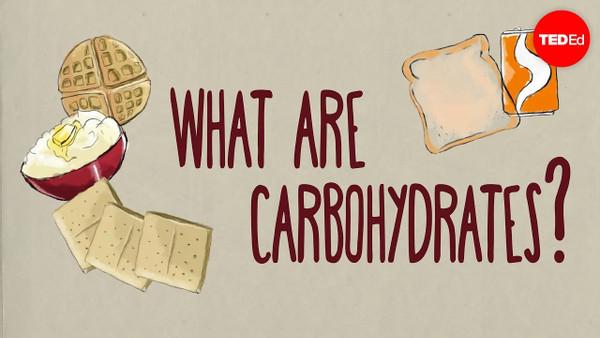Explore the World's Best Ideas
Join today and uncover 100+ curated journeys from 50+ topics. Unlock access to our mobile app with extensive features.
Carbohydrates explained
Carbohydrate is the nutritional category for sugars and molecules that your body breaks down to make sugars.
There are two major types of carbohydrates in foods:
- Simple sugars. Monosaccharides are glucose, fructose, and galactose. When two monosaccharides are linked you get a disaccharide, like lactose, maltose, and sucrose.
- Complex carbohydrates have three or more simple sugars strung together. Three to ten linked sugars are oligosaccharides. More than ten are called polysaccharides.
16
197 reads
Glycemic index
During digestion, your body breaks down complex carbohydrates into monosaccharide building blocks, which your cells use for energy.
The sugar level in your blood goes up when you eat any carbohydrate-rich food.
- Food like crackers and white bread are high in starch and are easily digested. They have a high glycemic index, raising the sugar level in your blood.
- Food high in fibre like vegetables, fruits and whole grains slows the release of glucose into the blood. They have a lower glycemic index.
- Eggs, chees and meat have the lowest glycemic index.
19
155 reads
Insulin plays a vital role in sugar management
Insulin is a hormone that is synthesised in the pancreas. Insulin is essential for sugar management.
When you eat, and your blood sugar rises, insulin is secreted into the blood. It encourages your muscle and fat cells to let glucose in and starts the conversion of sugar into energy.
16
145 reads
Insulin sensitivity and insulin resistance
Insulin sensitivity is how responsive your cells are to insulin. The more a unit of insulin lowers blood sugar, the more sensitive you are to insulin.
If insulin sensitivity goes down, it is known as insulin resistance. The pancreas still sends out insulin, but the muscle cells are less responsive to it. The blood sugar fails to lower and the blood insulin continues to rise.
17
131 reads
Metabolic syndrome
Whether your food tastes sweet or not, sugar is sugar. Chronically consuming a lot of carbohydrates may lead to insulin resistance which can lead to a serious condition called metabolic syndrome.
Symptoms of metabolic syndrome include high blood sugar, increased waist circumference, and high blood pressure. Metabolic syndrome increases the risk of developing cardiovascular disease and type II diabetes.
17
147 reads
IDEAS CURATED BY
CURATOR'S NOTE
This is an excellent explanation of how a chronic excess of carbohydrates could lead to metabolic syndrome and diseases such as type II diabetes.
“
Kaleb 's ideas are part of this journey:
Learn more about videos with this collection
How to improvise with ingredients
How to follow a recipe
How to prepare ingredients
Related collections
Similar ideas
4 ideas
4 ideas
The Pros And Cons Of The Paleo Diet
huffpost.com
Read & Learn
20x Faster
without
deepstash
with
deepstash
with
deepstash
Personalized microlearning
—
100+ Learning Journeys
—
Access to 200,000+ ideas
—
Access to the mobile app
—
Unlimited idea saving
—
—
Unlimited history
—
—
Unlimited listening to ideas
—
—
Downloading & offline access
—
—
Supercharge your mind with one idea per day
Enter your email and spend 1 minute every day to learn something new.
I agree to receive email updates



